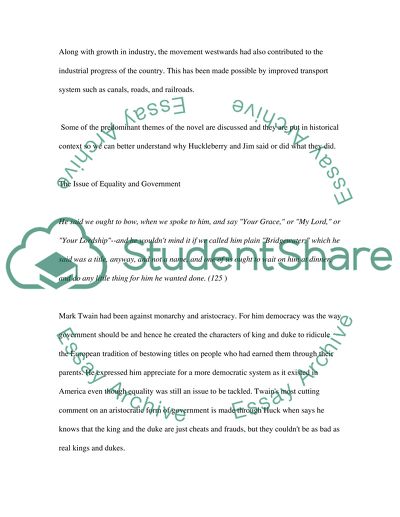Cite this document
(“The Adventures of Huckleberry Finn by Mark Twain Book Report/Review”, n.d.)
Retrieved from https://studentshare.org/literature/1510827-the-adventures-of-huckleberry-finn-by-mark-twain
Retrieved from https://studentshare.org/literature/1510827-the-adventures-of-huckleberry-finn-by-mark-twain
(The Adventures of Huckleberry Finn by Mark Twain Book Report/Review)
https://studentshare.org/literature/1510827-the-adventures-of-huckleberry-finn-by-mark-twain.
https://studentshare.org/literature/1510827-the-adventures-of-huckleberry-finn-by-mark-twain.
“The Adventures of Huckleberry Finn by Mark Twain Book Report/Review”, n.d. https://studentshare.org/literature/1510827-the-adventures-of-huckleberry-finn-by-mark-twain.


